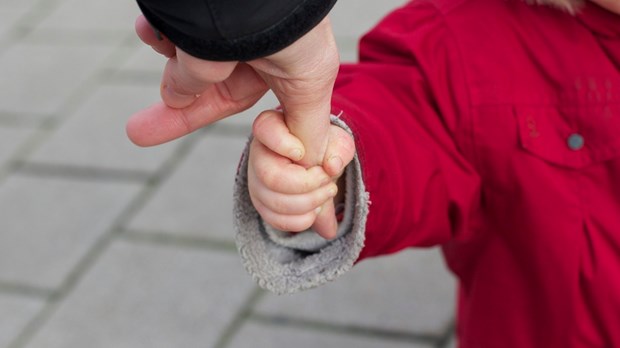
I think of myself as a rather laissez faire parent. I believe in germs and dirt. My kids, including my three-year old, go outside and play without my immediate supervision. When they fall down, I wait to make sure they are really truly hurt before I comfort them (like when Marilee, the three-year old, rounded a corner wearing only tights and a leotard and skidded her way into the side of a chair. She's had a black eye for a week.). I wait to intervene when they are yelling at each other. I make them make their own beds and put away their own clothes. I let them climb trees and scamper across rocks at the beach.
So when I saw Hanna Rosin's cover article for this month's Atlantic about "The Over-Protected Kid" I figured I would not find our family within its pages.
Rosin begins by describing a playground in Wales that invites kids to ignore grownups, play with fire, and risk life and limb (or at least limb—as Rosin articulates well throughout the article, playground deaths past and present are "singular tragedies" that safety measures do little to avoid). She goes on to provide an historical narrative of why our safety precautions on playgrounds and elsewhere were put in place, and to demonstrate how more or less futile they are.
But here's the thing. Even the super-cool playground Rosin describes includes adults who are on duty to intervene if something gets out of hand. She never mentions safety measures (like bike helmets and seatbelts) that have actually made a difference in protecting our children from bodily harm. My own parenting is kind of like Rosin's article. I say I let my kids take risks and that I'm not a helicopter parent. But still: my kids wear helmets when they are on their bikes, even though none of them can move at more than five miles per hour. We buy organic produce when we can. I might not rush to their aid at the first whimper, but they certainly receive kisses and affirmation every single day. I felt more indignant than Penny did when she came home with a bad grade on a spelling quiz as a result of her poor handwriting, not her poor spelling. And, yes, truth be told, I get a little nervous when they are outside and I can't see their whereabouts from peeking out the window.
I'm as much a product of my generation of parents as anyone else. And this contemporary parenting style comes with its liabilities, for sure. My kids may grow up with less resilience, less "grit," than I did as I rode around town helmet-free, sat in the front seat next to my mother when she drove, and ran around the neighborhood for hours with no one really aware of my location. But we are responding to a parenting ethos that wasn't exactly perfect either. At the same time that Rosin's article has been making the rounds, I read a blogpost called "If Moms Had Blogs in the 70s." It details the happy irresponsible semi-neglect of the mothers from a generation ago:
This morning I got up and Jennifer and Kimberly were eating Pop Rocks in front of the TV set watching Captain Kangaroo while Matt was already out in the back yard with a glass of Tang. I sat down and had a cigarette. I really wanted to watch my programs but I didn't want to have to get up and change the channel or mess with the antenna to get it to come in clear, so I let the girls continue until I was done my cigarette. I made sure to tell them not to drink any Pepsi for a couple hours so the Pop Rocks wouldn't explode in their stomachs. That happened to some kid on TV, you know.
You can imagine where this post goes (and it's certainly worth reading in full for a good laugh and a good reminder of why we aren't parenting that way any more).
Hanna Rosin does a fabulous job of demystifying our contemporary parenting situation and providing an historical context for it. I highly recommend her article, but not because it should change much of how we parent today. Really, we just need to recognize that no generation is going to get parenting exactly right. Kids will grow up with something to react to—whether it's our negligence or our over-involvement or something in between.
At the end of the day, it is not my job to be a perfect parent. But I am called to love my kids as best I can. To give them boundaries. To show them grace. And ultimately, to let them see that I am a flawed human being, just like them, doing my best to help them grow up.
Support our work. Subscribe to CT and get one year free.
Recent Posts

In Defense of Helicopter Parenting
In Defense of Helicopter Parenting
In Defense of Helicopter Parenting
In Defense of Helicopter Parenting














